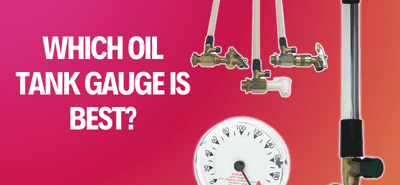5 Tips to Save on Heating Oil this Winter
Winter is fast approaching and many home heating oil users will need to be prepared for the cold months ahead. Given the current economic situation, many homeowners and tenants are fearful of how they are going to afford the increased cost of heating their homes. To aid heating oil users, we have put together a few tips on how to save a few extra £££’s on your heating oil bills in 2011.
1. Buy your heating oil early
Probably the most important aspect of cutting your fuel bill this winter is buying as much of your fuel as possible at the right time. Many people ask us when exactly is the right time and this can be an extremely difficult question to answer.
The number of factors contributing to the variation of the price of heating oil across the UK is mind bogglingly complicated to follow, even for the best industry analyst. However, for the vast majority of us an understanding of basic economics can save you a substantial amount on your heating oil bill.
As we all know, as the demand for products increases the price of that product begins to rise. Equally, as the demand falls the price decreases. As the weather begins to turn colder and the nights get longer, heating oil use across the UK increases as people spend longer indoors and have the heating on for longer periods.
Increased usage has an impact on the world price of oil and this will be particularly noticeable from mid-autumn until the end of winter. This period is when two-thirds of the heating oil in the UK is consumed each year and as weather conditions worsen, the higher the consumption rate and, inevitably, the higher the price.
It is now early autumn and arguably the best time to stock up on your oil as prices tend to be lower right now than later in the year, particularly if supply problems develop nationally or regionally.
It is also important to remember to try and order as much fuel as you can – the larger the order the lower the pence per litre rate as the cost of delivery for the distributor is reduced, saving you more money over a 12 month period.
2. Turn your thermostat down
It is important to ensure that the thermostat in your home is not set too high and that it is accurate. According to OFTEC, the Oil Firing Technical Association and the marketing body for the oil firing industry in the UK:
Accurate system controls can save money by reducing heat wastage. Reducing room temperature by 1ºC, you can save up to 10% off your annual fuel bill.
Many oil-fired boilers will also have a thermostatic control located on the appliance itself. Whilst we cannot recommend you adjust these controls yourself without professional guidance, it is definitely worthwhile asking a qualified OFTEC registered engineer to examine the appliance and adjust the thermostat setting if necessary.
Many boilers that have not been serviced or have not been set up correctly will run at temperatures of 80-90 degrees. For most boilers this is totally unnecessary and will use significantly more fuel. If you run the boiler at a lower level of 65-70 degrees and leave the heating on for slightly longer in the winter and around 60 degrees for the rest of the year, this will give the same amount of heat in your home on a more consistent basis at a reduced cost.
3. OFTEC approved Service
To save money on heating oil, the fuel efficiency of the boiler is the key! Like any appliance or engine it is important to have your boiler serviced regularly, at least every 12 months to ensure that it is delivering optimum efficiency as even a small percentage drop in performance will be costly in the winter. If you have an Atkinson Tankmaster on you oil tank, you may need to replace the filter to ensure clean oil is being used by your heating burner. This will also mean your burner will last longer between services. You could also consider asking your heating engineer to fit a oil de-aerator (tigerloop) into your oil line. This would help take any air out of your oil and increase the efficiency of you oil burning and again help keep your burning in good condition for longer.
4. Insulation and draft exclusion
Fundamentally if there is not adequate insulation of your home, heat will escape more quickly causing you to use more fuel particularly in the winter. Insulation is an important way of keeping heat in, or out, of buildings and is a vital part of energy saving. Heat escapes from all parts of the building, but as the figures below show, most is lost through the walls and roof.
- Walls – 35%
- Roof – 25%
- Draughts – 15%
- Floor -15%
- Windows – 10%
(Figures supplied by Energy Saving Trust)
The effectiveness of insulation and appropriate draught proofing are very important and there are many different types of insulation that can be used in buildings to help reduce your fuel consumption. There are a number of natural and recycled insulation materials that are as good, if not better, than conventional ones.
5. Avoid Direct Debit
Direct debit schemes can seem like a good way to spread the cost of oil across a 12 month period but they can also be costly and prevent you from shopping around for the best possible deal. Although paying in advance can seem like a burden at the time, it will save you money in the long run.










